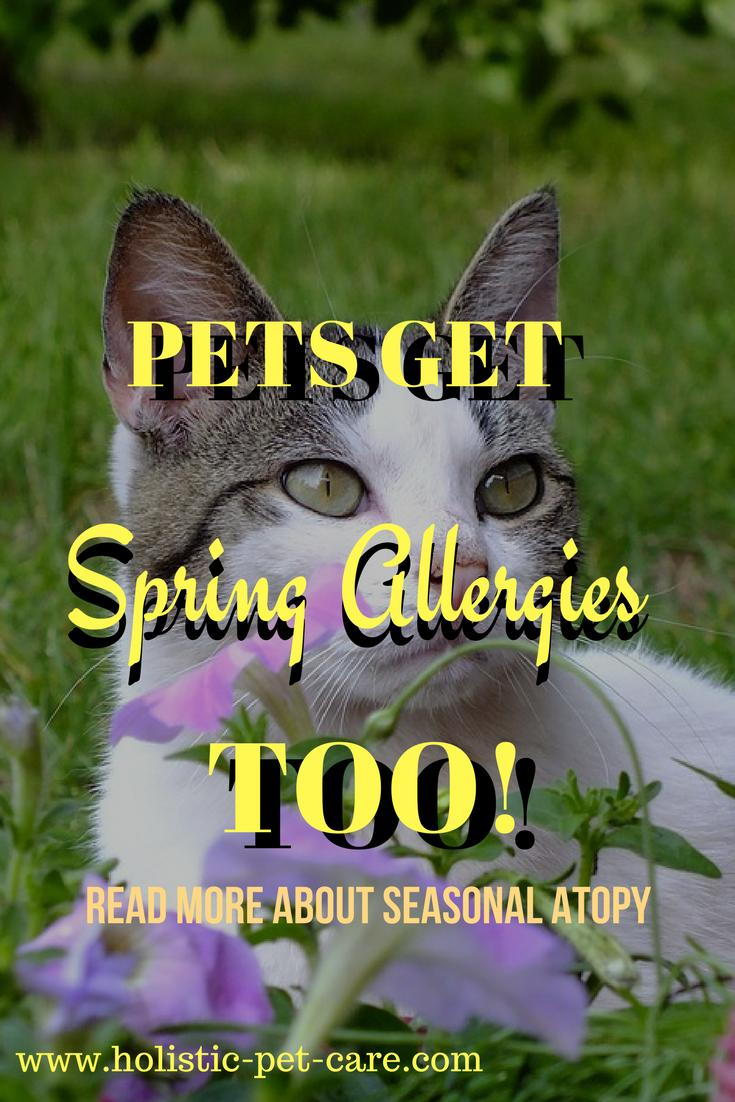Spring has Sprung!
With the spring weather coming up on us, we'd like to make you aware of both some common spring time holiday hazards, and of seasonal allergies that affect many pets this time of year.
- Make sure to keep your pet away from shiny St. Patrick’s Day beads and plastic Easter grass. These things can cause intestinal obstructions, and cats especially are drawn to crackling string-like materials.
- As always, no chocolate candy eggs or bunnies ever.
- Hard-boiled eggs are fine as a treat.
- Do not feed potato bread with raisins.
- With the warming weather, fleas and ticks are breeding everywhere. Be sure your pet has plenty of flea preventative and tick preventative if your dog is traveling to the mountains or east of them.
- If you pet has seasonal allergies, be sure to schedule a follow up appointment with your vet to keep any medication prescriptions current for when your pet needs it.
Seasonal Allergies
Unlike with humans, dogs and cats will typically show signs of seasonal allergies by itching skin and hair loss from the resultant scratching. This is known as atopy. The most affected regions are the face, abdomen, and feet. Pets can be allergic to many of the trees and grasses that humans are allergic to. These include pollinating grasses such as ragweed, and windborne pollinating trees such as alder, birch, hazel, and juniper. In addition to these plant allergies, fleas can also cause an allergic reaction. If your pet has allergies, keep your windows closed during peak pollination hours to prevent mold and pollen from getting in. Use a vacuum cleaner with a heap filter and bag to clean pollen off the floor and carpets, and wash and replace bedding regularly. As with humans, allergies are treatable with a variety of medications and also injections. Check with your vet to see if allergy testing is right for your pet, and what treatments would be appropriate for management.

